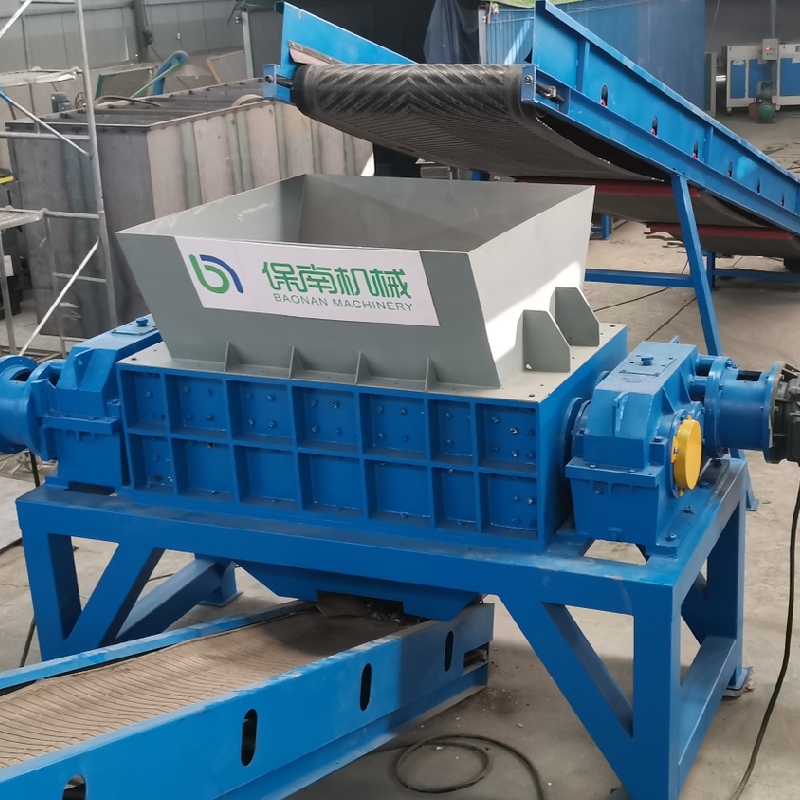

Rhag . 24, 2024 00:16 Back to list
The Role of Plastic and Metal Shredders in Recycling and Waste Management
In an era increasingly marked by environmental consciousness, the recycling of materials has become a critical focus for both industries and consumers. Among the most pivotal aspects of this recycling process is the shredding of waste materials, particularly plastics and metals. Plastic and metal shredders play a crucial role in the efficient recycling of these materials, contributing to sustainability and resource conservation.
Understanding Plastic and Metal Shredders
Plastic and metal shredders are machines designed to break down large pieces of plastics and metals into smaller, manageable fragments. These machines vary in size, capacity, and technology, catering to different scales of operations—from small recycling centers to large industrial facilities.
The shredding process involves several stages. Initially, the waste materials are fed into the shredder, where powerful blades cut and crush the items. This fragmentation is essential, as it increases the surface area of the materials, making subsequent processing steps, such as washing, separation, and melting, much more efficient. The shredded materials can then be processed further into pellets or raw materials, ready to be reintroduced into the production cycle.
The Importance of Recycling Plastics and Metals
Plastics and metals are ubiquitous in modern life, found in everything from packaging to household appliances. However, the production of these materials is resource-intensive and often environmentally harmful. By recycling plastics and metals, we can significantly reduce environmental impact, conserve natural resources, and lower greenhouse gas emissions.
According to estimates, recycling one ton of plastic can save as much as 7.4 cubic yards of landfill space, while recycling metals can reduce energy consumption by up to 95% compared to producing new metals from ore. Furthermore, recycling helps to create jobs in the recycling industry, contributing to the economy while fostering a circular economy that minimizes waste.

Innovations in Shredding Technology
Technological advancements have significantly improved the efficiency and effectiveness of plastic and metal shredders. Modern shredders come equipped with features such as automated feeding systems, advanced control panels, and enhanced safety mechanisms, which not only streamline operations but also ensure operator safety.
Additionally, innovations such as dual-shaft shredders have gained popularity for their ability to handle a diverse range of materials and sizes. These machines often operate at lower RPM (revolutions per minute), which reduces wear and tear on the machinery, elongating its lifespan. Such advancements enable recyclers to process mixed materials and ensure the homogeneity of the final recycled product.
Environmental and Economic Benefits
The benefits of plastic and metal shredders extend beyond mere efficiency. By promoting recycling, these machines contribute to a reduction in landfill waste, mitigating pollution, and conserving energy. This is particularly critical given the global challenge of plastic pollution, which has reached startling proportions. Effective shredding practices can help decrease the amount of plastic that ends up in oceans and waterways, protecting marine life and ecosystems.
From an economic perspective, the use of shredders in recycling operations often results in cost savings. By recovering valuable materials from waste, businesses can reduce raw material expenses and improve their overall bottom line. Moreover, as the demand for recycled materials grows, companies that invest in shredders and recycling infrastructure position themselves to capitalize on this expanding market.
Conclusion
Plastic and metal shredders are instrumental in advancing recycling efforts and promoting sustainability in waste management. Their ability to efficiently process materials not only aids in the reduction of waste but also fosters a circular economy that reuses resources and decreases environmental impact. As technology continues to evolve, the effectiveness of shredding operations will further enhance our capability to manage waste responsibly, paving the way for a greener, more sustainable future. Embracing these machines and the principles of recycling will be crucial for industries and individuals alike as we navigate the challenges of waste management in the 21st century.
Latest news
Troubleshooting Common Eddy Separator Problems
NewsJul.04,2025
The Role of Metal Recycling Plants in Circular Economy
NewsJul.04,2025
The Impact of Recycling Line Pickers on Waste Management Costs
NewsJul.04,2025
Safety Features Every Metal Shredder Should Have
NewsJul.04,2025
How Industrial Shredders Improve Waste Management Systems
NewsJul.04,2025
How Cable Granulators Contribute to Sustainable Recycling
NewsJul.04,2025